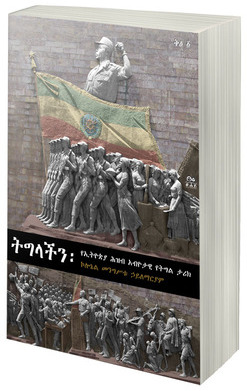Tadias Magazine
By Professor Donald N. Levine
Published: Wednesday, February 1, 2012
The leaders in the EPRP organization who authorized the scanning and posting of the book published by Tsehai Publishers on debteraw.com committed an act that was illegal, unethical, and imprudent. To my mind, that marks it as “un-Ethiopian.”
As I have come to know Ethiopians in many traditions and walks of life, at first hand and through the reports of numerous scholars, I find them essentially law-respecting, ethical, and prudent human beings. Whether it is in observing the laws enacted by an Oromo gumi gayo assembly, a Sidamo town meeting, or Tigrayan court of justice, Ethiopians traditionally express a strong sense of devotion to validly formulated laws and judicial pronouncements. (This trait captured me memorably when, after the new Constitution of 1955 was published, janitors could be seen in the Department of Justice leaning on their brooms and studying it closely!)
Again, whatever religious belief system they follow – Christianity, Judaism, Islam, or the worship of Waaq – Ethiopians exhibit a keen sense of respect for moral standards. What is more, I have found Ethiopians of many classes and ethnic groups to be mature in cautioning against impulsive and socially destructive behaviors. Indeed, what I have glossed as the culture of Wax and Gold reflects a wish to avoid saying things that will illicit negative reactions from those with whom they associate.

The brazen act of the debteraw.com website in scanning and posting the text of Tiglatchn by Mengistu Haile Mariam is patently illegal and so repeats the very behavior that they condemn. On this point, a number of attorneys have assured me that such action stands in clear violation of international and national copyright laws. Although the responsible party claims justification by virtue of a “Son of Sam Law” which prohibits criminals from profiting from their crimes by selling their stories, Colonel Mengistu, however, has not been paid for this book. The publisher not only gave him no money for the manuscript but stands to incur a loss in producing this publication.
It is, moreover, unethical, since it violates commonly shared ethical standards by virtue of responding to a displeasing act with an effort to destroy the perpetrator.
Finally, it is doubly imprudent. On the one hand, illegally posting this manuscript in digital form only serves to increase exponentially the distribution of what this website has condemned as a “book of lies.” Indeed, the point should be emphasized that such a wide distribution will likely strengthen the credibility and endurance of Mengistu’s claims rather than their condemnation. What is more, it aborts the opportunity that publication provides for serious critical scrutiny of a book that patently contains a great number of unsustainable claims. This action might also discourage the Press from publishing a memoir of the EPRP.
On the other hand, the attack on Tsehai Publishers reinforces a tendency among Ethiopians to vilify and defame one another when they disagree. As I have argued for decades, this tendency stands to impede the formation of productive public discourse and to reinforce cycles of violent conflict.
The victim of this triply unscrupulous revenge, Tsehai publisher Elias Wondimu, is a truly heroic Ethiopian, who has invested a huge amount of his life in producing a harvest of publications that can help Ethiopians understand themselves and appreciate their rich traditions and complex society. I can think of no more appropriate response by all Ethiopians, including enlightened EPRP members, than to proceed forthwith to tsehaipublishers.com and order three books. It would be no less appropriate to send a contribution to the Press for the legal defense fund, which they will need to resolve the legal aspect of this unfortunate affair.
—
About the Author:
Donald N. Levine served as the Peter B. Ritzma Professor of Sociology at the University of Chicago. His research and teaching interests focus on classical social theory, modernization theory, Ethiopian studies, conflict theory and aikido, and philosophies of liberal education.
Related:
Q & A with Elias Wondimu of Tsehai Publishers (TADIAS)
Ethiopia: Copyrights and CopyCrimes – By Alemayehu G Mariam (Ethio Media)
In defense of Tsehai Publishers – By Fikre Tolossa (Ethiopian Review)
